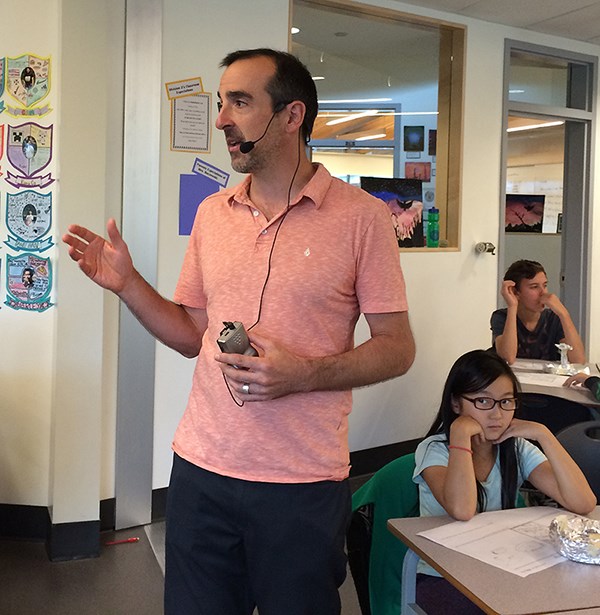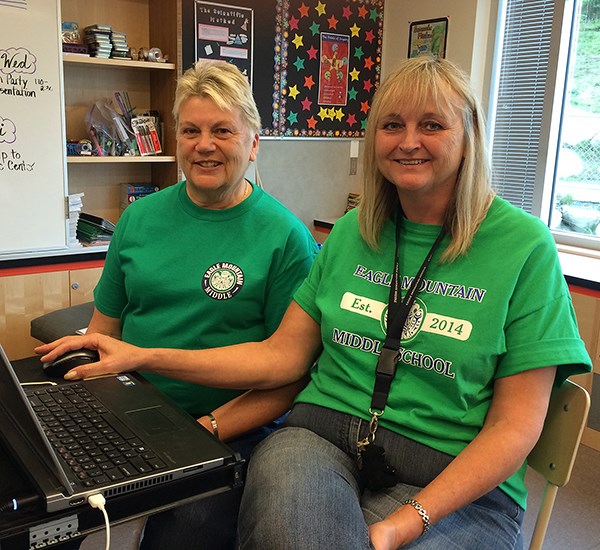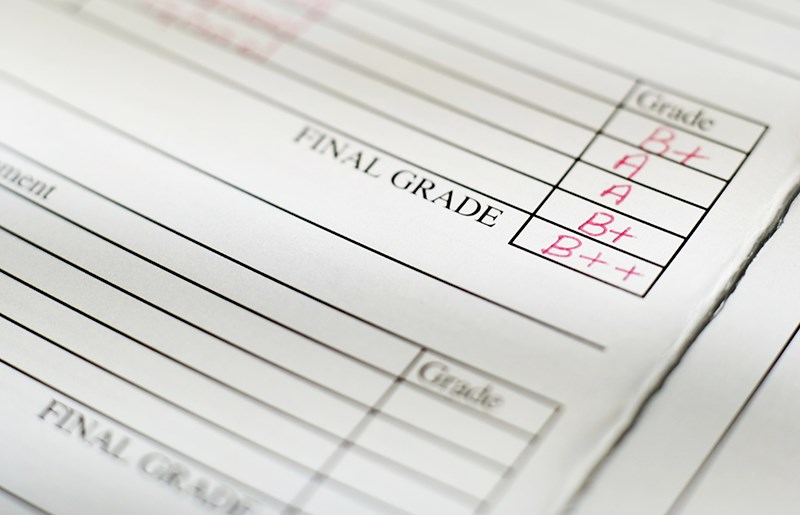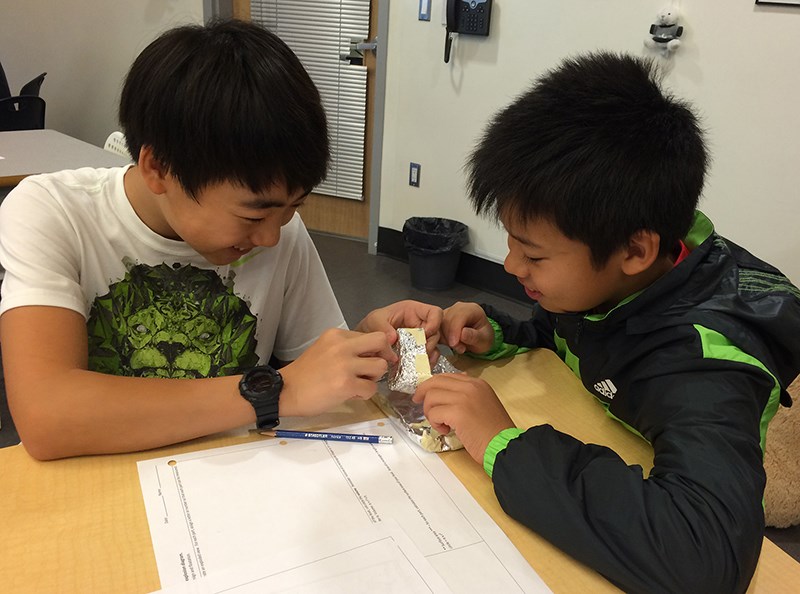A middle school in Anmore may be a model for changes in B.C.'s education system as it pioneers the province's new curriculum using the latest in technology, flexible classroom spaces and teaching strategies.
While all Tri-City public schools are moving towards more personalized learning and incorporating technology, it's at Eagle Mountain where many of the concepts in the revised curriculum and B.C.'s Education Plan have been implemented.
For example, there is no more Social Studies, Language Arts or Science as standalone classes — the subjects are blended into Integrated Studies, leaving room for students to explore topics more deeply, said James McConville, a Grade 7/8 teacher,

On the day The Tri-City News visited Eagle Mountain, instead of having two or three subjects squeezed into blocks, students had most of the morning to design, build and test boats made of tinfoil, tape and string to see how many pennies the crafts could hold.
With a ship's blueprint and facts to use as a jumping-off point for discussion, groups of Grade 6, 7 and 8 students worked together, planning, discussing and experimenting on a topic that required the understanding of displacement, math, analysis and communications.
"You have limited resources, very limited resources," McConville told the students, adding, "I might have the experience but I don't know the answer."
This idea — that teachers guide students on their learning journey rather than dictating lessons to them — is one that sits well with McConville, and he disagrees with skeptics who say students will end up ignorant and illiterate if they are in charge of their own education.
Eagle Mountain middle was one of 17 B.C. schools that were given an Innovation Partnership grant, worth $8,000, to further develop programs for implementing the revised Kindergarten to Grade 9 curriculum that is being introduced to schools this year.
STUDENTS HAVE OWNERSHIP
Under changes the school is adopting, content is still important — math, for example, is still a stand alone subject and teachers are working with experts, such as UBC's Leyton Schnellert, to develop content that is relevant and consistent with the education ministry's required learning outcomes.
"What has changed is that we now present a big idea or a science problem to solve and then students have a hook and are engaged in learning the content, McConville says..
"When students have ownership over learning the content, they are more likely to retain it later."

Barb Buczewski, who is a Grade 6/7 teacher as well as a team leader at the school, says it's easy to understand why teachers are happy to adopt the new curriculum, with its emphasis on helping students develop competencies, such as critical thinking, reflection, communication, collaboration and teamwork.
Her lessons are based on students' questions, a method called inquiry-based learning, and their learning needs, which differ from student to student, even day to day.
Eagle Mountain is in year two of its journey to use the province's revised curriculum, with a teaching guide Buczewski created, that outlines the curriculum (what students will know and understand) as well as the competencies and strategies they will use to learn them. It's a 30-month curriculum, shared between the three grades, and at the end, students will have a portfolio of presentations that will show their work.
"With teaching like this, every day is a new day," she said, pointing to a series of curriculum binders, hidden in a corner, that she no longer uses.
TECH IS WELCOME
It's also a given that technology is welcome in the classroom, principal Nancy Bennett says, and parents are given a booklet at the beginning of the year that lays out the school's policies. With the freedom to use digital devices in schools comes responsibility, and students rarely abuse the system, Bennett says.
They have to put away the devices during nutrition break and lunch, and for the most part they do.
But it's clear that laptops are the preferred technology, over smart phones and tablets, because they have keyboards and students can easily store their work.
If anything, it's the parents who are unsure of the benefits of kids bringing their own devices, although they get it once they can log on to FreshGrade, an app that lets them see their child's work from their home or office — no more waiting for report cards or encountering blank stares at the end of the day when asking a child what they did at school that day.
McConville also likes the way technology levels the playing field among students, encouraging non-writers to write and shy students to answer questions electronically using a collaboration app called padlet.com
"I set up every discussion so that every child is able to contribute to the class," he said.
NO MORE LETTERS

Traditional letter grades have already been eliminated at Eagle Mountain, and students get report cards that say whether students are meeting or exceeding ministry performance standards. Eventually, the plan is to move toward what's called three-way conferencing, where students discuss the progress they have made on goals they have set for themselves. Parents are encouraged to particpate in the conference while the teacher takes notes.
Buczewski plans to pilot the new assessment system in January.
The problem with letter grades, Bennett and Buczeweki say, is they inhibit learning because some students with low grades give up while some A students think the've learned enough.
"They're on a continuum, learning doesn't stop." Bennett says.
Parents have so far accepted the changes and are kept in the loop with what's going on at their school online. Most were quick to adapt to the FreshGrade app that alerts them every time their child posts a new entry to an onlline portfoil that includes photos and videos of student work.
"We're working hard on our journey," Bennett said. "If our school can help others as well as stay on our path, then that's what were here for."



